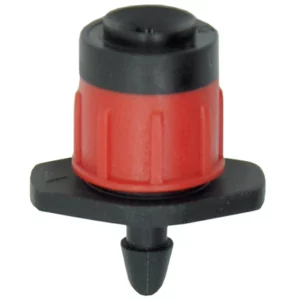Micro sprinklers, like drip irrigation systems, can contribute to improved crop yield and quality through several mechanisms:
- Uniform Water Distribution: Micro sprinklers are designed to distribute water evenly over a specified area. This ensures that each plant within the irrigated zone receives a consistent supply of water, helping to prevent under-watering or over-watering which can stress plants and negatively impact yield and quality.
- Promotion of Healthy Plant Growth: Adequate and uniform water distribution provided by micro sprinklers promotes healthy root development and overall plant growth. Plants with well-established root systems are better equipped to access nutrients and withstand environmental stresses, ultimately leading to improved yield and quality.
- Temperature Regulation: Micro sprinklers can help regulate temperature in the surrounding environment by releasing water droplets, micro sprinkler which can have a cooling effect during hot periods. Maintaining optimal temperature conditions can prevent heat stress in plants, which can otherwise reduce yield and compromise quality.
- Frost Protection: In certain environments, micro sprinklers can also be used for frost protection by applying water to crops during periods of freezing temperatures. The water forms a protective layer of ice around plant tissues, insulating them from the cold and minimizing damage.
- Enhanced Nutrient Delivery: Some micro sprinkler systems allow for the application of fertilizers or nutrients directly to the root zone along with water. This fertigation process ensures that plants have access to essential nutrients, which can promote healthy growth and improve the nutritional quality of crops.
- Reduction of Soil Erosion: Micro sprinklers, like other irrigation methods, help to prevent soil erosion by delivering water in a controlled manner directly to the root zone. By minimizing runoff and surface water movement, micro sprinklers help maintain soil structure and fertility, supporting healthy plant growth and high-quality yields.
- Increased Efficiency and Flexibility: Micro sprinkler systems can be tailored to meet the specific needs of different crops and growing conditions. Their flexibility allows farmers to adjust irrigation schedules, water application rates, and coverage patterns, optimizing water use efficiency and supporting optimal crop growth and development.
Overall, micro sprinkler systems can play a significant role in improving crop yield and quality by providing consistent and efficient water distribution, promoting healthy plant growth, and offering additional benefits such as temperature regulation and frost protection.
